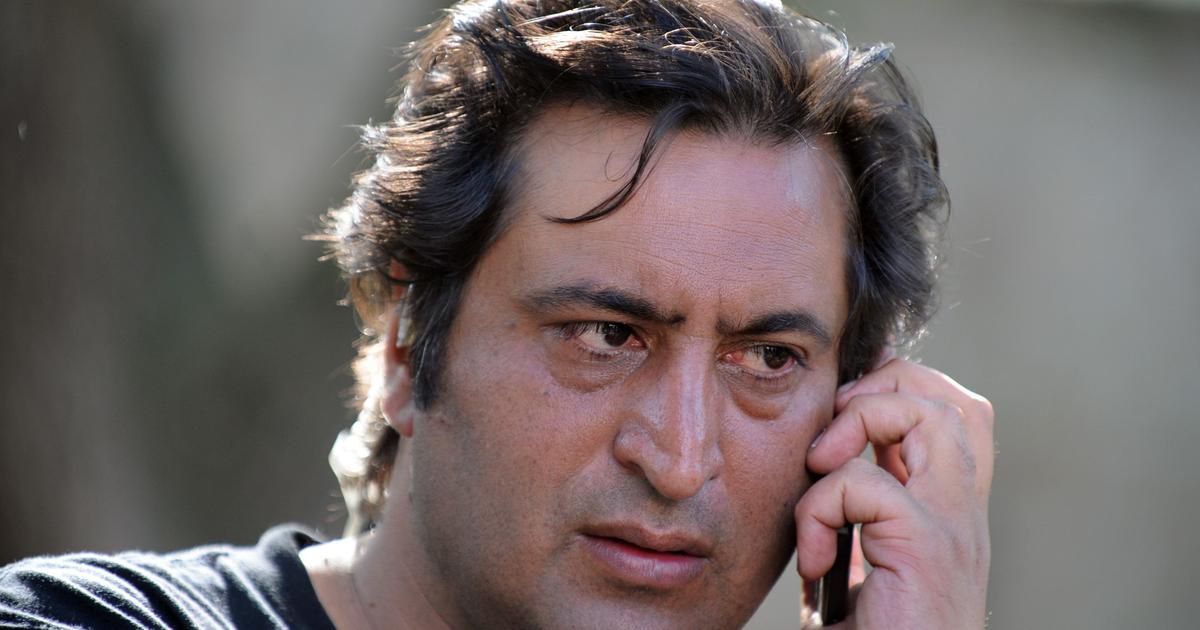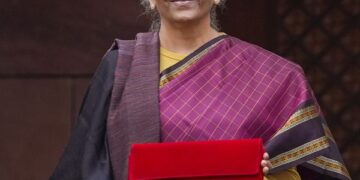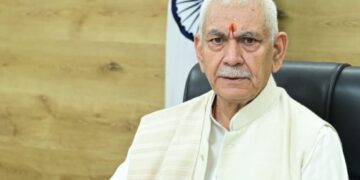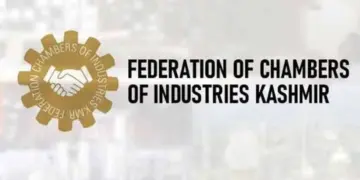Jammu: Peoples Conference chairman and MLA Handwara Sajad Gani Lone said the Pahalgam terror attack had sparked a “historic awakening” against violence in Kashmir, ending what he called the “social sanctity” violence had once attracted in the Valley.
“In the past 35 years, we have not witnessed an incident like the one that happened in Pahalgam,” Lone said, adding that “someone from outside came and martyred them (tourists) on our land. They were tourists who had come to enjoy the beauty of Kashmir, who stayed in our hotels, and who travelled with our taxi drivers,” Lone said while during the special session of the Jammu and Kashmir Assembly here on Monday.
Calling it a “watershed moment”, Lone said that while Kashmir had witnessed bloodshed for decades, the aftermath of the Pahalgam attack was different. “There is not a street, not a lane, not a city, not a village where people did not come out in anger and go against this violence. This has never happened in the last 78 years. This happened for the first time,” Lone said.
He hailed the families of the victims for preventing an eruption of hatred. “The fire that could have been lit, they [families of victims] put it out and created an atmosphere of love. In the whole of India, the face of that Kashmiri was seen — the Kashmiri who gave his life to save a tourist,” Lone said, recalling accounts of locals carrying injured tourists on their shoulders for over an hour through jungles to get them medical help.
Expressing his deep gratitude, Lone added, “We should be thankful to their relatives. After such a big loss, they demonstrated humanity when others might have turned to anger.”
The PC chairman also made a request to the House: “We have not written their names in the resolution. Otherwise, it becomes just a statistic. When the name comes, human lives come. Even after 20 years, when we may not be here, someone will say, ‘I have a right; my father or brother sacrificed here.’ We must write their names one by one.”
Lone added that Kashmir’s culture of hospitality, deeply tied to tourism, was under existential threat due to recurring violence. “I am not talking economics; Allah has kept our livelihood in tourism and hospitality. This hardship aims to uproot an entire generation,” he said.
The PC chairman acknowledged how violence had been normalized in Kashmir society — and how that normalization had now been challenged. “For 35 years, we have seen violence and we should not do politics on this. There was a societal acceptance of this violence; some people used to accept it as legitimate violence. However, what we saw when people marched against Pahalgam carnage was social stigmatization of violence. People are not willing to accept it anymore.”
However, Lone cautioned that this shift was only the beginning: “This is not the end of social sanctity of violence. It is the beginning of the end. We should create such an environment that this mindset does not go back anywhere.”
Furthermore, Lone pointed to a long-standing issue where civilians had often suffered at the hands of security forces. “The biggest challenge for law enforcers has been that they sometimes could not distinguish between an innocent man and a terrorist. Sometimes four innocents were killed while arresting one terrorist,” he said.
He also stressed that societal healing could not come from force. “We do not want to accuse anybody. Whatever happened. But the inhabitants of J&K — unless thousands of Adil Shahs are created — violence will not end.”
“The police have a limited role. The army has a limited role. What the inhabitants of this place will do, nobody else can do,” Lone added.
He further called on the media to act responsibly, cautioning that hostile narratives could endanger Kashmiri students studying outside the state. “Some sections of the media have been very good. But some have been against unity, inviting punishment on our innocent students,” he said.
Lone proposed a “formal step” — even if not publicized — to ensure solidarity and prevent reactions that would play into the hands of terrorists. “Let us not do what the terrorists want us to do,” he said.
The Peoples Conference chairman also sought institutional support for the families of those killed. “I am not talking about ex gratia. Ex gratia trivializes sacrifices. Guardianship of families should be assumed by the Jammu and Kashmir government. If someone’s daughter wanted to become a doctor, it is now our job to make her a doctor.”
Choking up, Lone spoke about the helplessness felt by families when tragedy strikes: “When a dead body comes, loaded with bullets, the first thing you feel is helplessness. I have cried myself. Whenever someone dies from a bullet, that is when you realize the agony of the last moments. The most dangerous, painful are the last moments. When a person knows he will not survive — those three or four minutes are like doomsday,” Lone, whose father Abdul Gani Lone was killed by terrorists on May 21, 2002, said in his address. (KNO)







